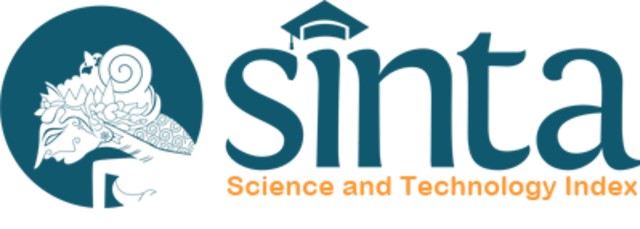Pengaruh Audit Internal dan GCG terhadap Penyaluran Pembiayaan Kredit Usaha Rakyat melalui Penerapan Manajemen Risiko
Abstract
The People's Business Credit Financing Program (KUR) is one of the government's initiatives to increase access to financing for MSMEs. Increasing KUR distribution has the potential to increase the risk of financing problems, so it is important to mitigate this. This research aims to (1) analyze the influence of internal audit on GCG, (2) the influence of GCG on risk management, (3) the influence of internal audit on risk management, (4) the influence of GCG on KUR distribution, (5) the influence of internal audit on distribution KUR and (6) the influence of risk management on KUR distribution. The sample for this research was 121 respondents who worked at PT. BSI Central Java Region, taken using a multistage-random sampling technique. Data collection was carried out by distributing questionnaires online, then analyzed using descriptive analysis and SEM-PLS using the SmartPLS application. The research results show that (1) internal audit has a significant influence on Good Corporate Governance (GCG); (2) GCG has a significant influence on risk management; (3) internal audit also has a significant effect on risk management; (4) GCG also has a significant effect on the distribution of People's Business Credit (KUR); (5) internal audit does not have a significant influence on KUR distribution; (6) risk management has a significant effect on KUR distribution
Downloads
References
Agoes, S. 2017. Auditing: Petunjuk Praktis Pemeriksaan Akuntan oleh Akuntan Public (edisi 5). Jakarta: Salemba Empat.
Darmawi H. 2016. Manajemen Risiko (Edisi 2). Jakarta: Bumi Aksara.
Effendi, M.A. 2016. The Power of Good Corporate Governance Teori dan Implementasi. Jakarta (ID): Selemba Empat.
Fredrick, O.S. 2014. The Role of Internal Audit in Implementing Risk Management a Study of State Corporation in Kenya. International Journal of Business and Social Science. 5(6): 169-176.
Ghozali, I. 2020. Aplikasi Analisis Multivariete Dengan Program IBM SPSS 23. Edisi 8. Semarang: Badan Penerbit Universitas Diponegoro.
Hair, J.F. 2016. Multivariate Data Analysis. Fifth Edition. New Jersey: Prentice Hall, Inc.
Hair, J., M. Tomas, M. Christian, S. Marko. 2017. A Primer on Partial Least Squares Structural Equation Modelling (PLS-SEM). 2e Edition USA: Sage
Hair, J., A. Alamer. 2022. Partial Least Squares Structural Equation Modeling (PLS-SEM) in second language and education research: Guidelines using an applied example. Research Methods in Applied Linguistics. 1(3), 100027. doi: https://doi.org/10.1016/j.rmal. 2022.100027
Kader, M.A. 2018. Peran UKM dan Koperasi dalam Mewujudkan Ekonomi Kerakyatan di Indonesia. Jurnal Riset Bisnis dan Mana-jemen. 8(1), 15-32.
Kasmir. 2014. Manajemen Perbankan. Edisi Revisi. Cetakan 12. Jakarta: Rajawali Pers
Kock, N., P. Hadaya. 2018. Minimum sample size estimation in PLS‐SEM: The inverse square root and gamma‐exponential methods. Information Systems Journal, 28(1), 227-261.
Setiawaty, A. 2016. Pengaruh Pelaksanaan Meka-nisme Good Corporate Governance terha-dap Kinerja Perbankan dengan Manajemen Risiko sebagai Variabel Intervening. Jurnal Ekonomi dan Manajemen Unmul. 13(1): 13-24.
Sundarta, M.I., A.R. Nuraeni. 2017. Analisis Pengaruh Penerapan Good Corporate Governance Terhadap Prosedur Pemberian Kredit Dalam Meningkatkan Feebase (Studi Empiris Pada PT Bank Central Asia Tbk Cabang KCU Margonda depok). Neraca Keuangan: Jurnal Ilmiah Akuntansi dan Keuangan. 12(2).
https://doi.org/10.32832/neraca.v12i2.1991
Wilyadewi IIDAY. 2023. The impact of good corporate governance on corporate sustainability on LPD in Bali on risk management as mediation. Enrichment: Journal of Management. 12(6), 5283-5295.
Yonatama CA, Siti RH. 2018. Pengaruh Penerapan Manajemen Risiko dan Audit Internal Terhadap Kebijakan Pemberian Kredit (Studi pada Bank Umum Milik Negara di Kota Malang). Jurnal Administrasi Bisnis. 59(1).
Permatasari, I., R. Novitasary. 2014. Pengaruh Implementasi Good Corporate Governance terhadap Permodalan dan Kinerja Perbankan di Indonesia: Manajemen Risiko Sebagai Variabel Intervening. JEKT, 7(1): 52-59.















